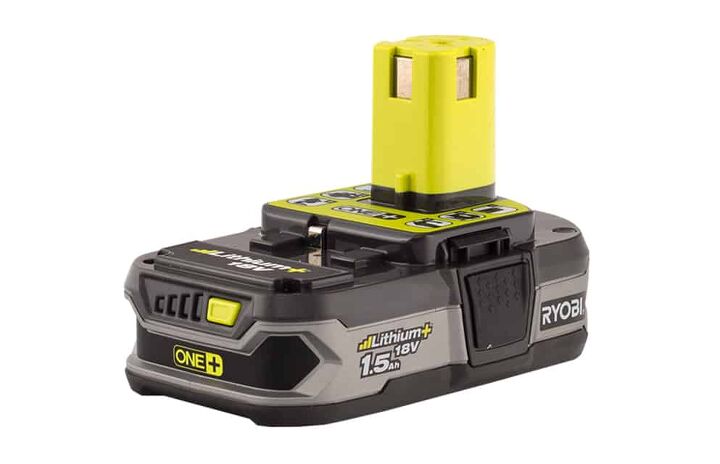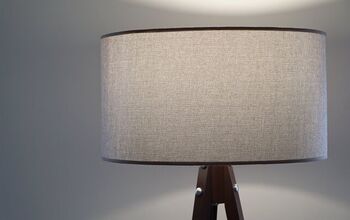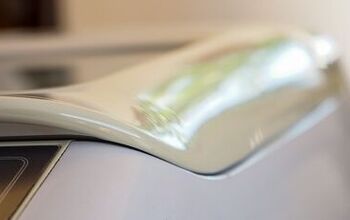Will Ryobi Batteries Fit Other Brands? (Find Out Now!)

Not all of us can be professional handymen and home renovators. For most of us, we spring into action when there is a need. Perhaps the biggest, challenge, however, is procuring the tools necessary to take on the various jobs around the home.
Being an amateur DIYer likely means having a mixture of tool brands. Unless you are diehard loyal to one brand, it is all too common to have a mix. But the question then becomes about the compatibility of the batteries. For instance, if you have Ryobi tools, can you use the batteries with other brands? The short answer is “no”, though it is possible to build a charger that is compatible.
Ryobi and Cross-Brand Compatibility
While it may seem like something of a common-sense answer to think that batteries would not be compatible with other brands, it is actually sort of surprising. Especially when you consider just who owns most of these brands.
Take Stanley Black & Decker, for instance. They own DeWalt, Craftsman, Irwin, and other major tool brands. Despite the brands all sharing similarities in their battery pack stylings, there is no cross-brand compatibility.
So, it should beg to reason that Ryobi would not make batteries that are compatible with other brands, either.
Why are There no Cross-Brand Batteries?
The answer is quite simple when you think about it. The biggest reason for not having cross-brand compatible batteries is money. These brands want you to have to pay for batteries for each of the tools that you are using.
After all, with warranties covering many major power tool brands, they likely aren’t getting the consumer on replacement batteries. So, the hope is that the consumer will need to purchase multiple batteries to get the job done.
Ryobi Does Have Some Compatibility
While there is an alternative to the cross-brand issue (more on that later), there is some good news. Most Ryobi batteries with the same voltage are interchangeable with chargers of their type.
What does that mean? Well, let’s say that you have an 18V compact lithium-ion battery but you lost the original charger. If you have another lithium-ion 18V battery charger from Ryobi, that one will work fine. It is important to note that you should not charge a lithium-ion battery on a nickel-cadmium charger. It simply will not work.
Aside from that, you can safely assume that none of the manufacturers have cross-brand compatibility. Moreover, there likely is not going to be such an option coming down the pike anytime soon.
Ryobi One+ Tools and Batteries
Let’s say that you are a diehard Ryobi fan through and through. Despite being the same brand, there can be significant differences between old tools and new ones even within a singular brand.
For instance, the newest line of tools from Ryobi is the Ryobi One+ offerings. There is compatibility there as any One+ battery can work with any Ryobi One+ tool. But what happens if you have an older tool and want to use the newer battery?
The good news is that there is some compatibility among battery types. The one caveat is that you cannot mix new lithium-ion batteries on an old Ryobi NiCad charger. Other than that, you can mix and match as you see fit within the same voltage. So, use an old NiCad battery on a new brushless tool or add a beefed-up new battery to an old blue Ryobi tool. You can even charge both kinds on the new chargers.
Interchange Tool Batteries Between Brands
Battery Adapters
Though there is no cross-brand compatibility, there is one ray of hope. There are battery adapters out there that work between select tools. Keep in mind that these adapters are not meant to be universal in nature. At best they will work between two brands.
There is the Badaptor, which works between Ryobi and DeWalt. This adaptor allows customers to use their DeWalt batteries on Ryobi tools. So, if you are a fan of both brands, having the Badaptor is probably a good investment.
A Homemade Solution
Because of the issue with cross-brand compatibility, there are some folks out there finding their ingenuity. After all, having the flexibility offered by cross-brand compatibility would make things that much easier, right?
That is where building a cross-brand battery adapter comes in handy. The process is actually quite simple, too. It is about hacking the battery packs and making them work with one another. In the instance of using a Ryobi tool with a DeWalt battery pack.
DeWalt has circuitry within the adapter whereas Ryobi puts theirs in the battery. All you have to do is transplant the PCB from the adapter of the DeWalt to the battery shell from the Ryobi tool. If you need guidance, there are videos out there that can help. But you can create a custom compatibility adapter of sorts to share batteries between tools.
The Real Solution
The only downside to the previous section is that it takes a little bit of know-how. Those who are at best amateur DIYers, may be uncomfortable hacking a battery pack. In that instance, there is no other recourse: buy a new battery.
As much as it may suck to spend the money, the best route is to just buy a battery that is compatible with your brand’s tool. Not only can you ensure that the tool will work as advertised, but you don’t run the risk of voiding any warranties on your tools or the batteries that you do have.
Related Questions
Now that you know the compatibility limitations between batteries, you may have further questions. When it comes to Ryobi tools, in particular, users had other questions related to battery compatibility within the brand’s own line of tools.
How Can I Tell How Old My Ryobi Battery is?While it is good news that you can use both old and new batteries on a variety of Ryobi tools, there is still one question. How exactly do you know how old your Ryobi battery is in the first place? Most of us cant remember when we purchased things, especially if it was more than a few months ago.
The good news is that every Ryobi tool and battery comes with a stamped date code. Moreover, the newer Ryobi tools will also have a serial number stamped on them. The date code tells you when the manufacture date of the battery. It is in a year/week format. The first two digits represent the year while the second two tell you what week they were manufactured.
In the event that the battery code is missing, you are likely out of luck. If you happened to keep the receipt from your purchase, that’s a start. Even then, that only indicates when you purchased the battery or tool. It doesn’t tell you when it was manufactured.
How Long do Lithium-Ion Batteries Last?Like most other tool manufacturers these days, there is a primary focus on lithium-ion batteries. They have greater charge capacity and longevity than the nickel-cadmium batteries of old. That just leaves the question of how long lithium-ion batteries will last.
Generally speaking, you can expect anywhere from 3 to 6 years out of the average lithium-ion battery. There are factors, however, that can either shorten or lengthen that shelf life accordingly.
Overcharging is a major issue with batteries of all types. If you leave lithium-ion batteries on the charger for too long, it can erode the life of the battery over time. Likewise, remove your batteries from devices that you don’t plan to use for long periods.
Proper temperature storage is imperative as well. Extreme heat or cold can damage the battery because those lithium components are quite susceptible to oxidation. Furthermore, they have the potential to catch fire in the most extreme of situations.
When in doubt, look for signs of damage. If you notice batteries that are leaking, dented, swollen, or bulging, do not use them. Lithium-ion batteries can be fire hazards due to the organic solvents and lithium salts within. Store damaged batteries away from any others to be safe or replace them entirely if you believe there to be major damage.
Related Guides

Ryan Womeldorf has more than a decade of experience writing. He loves to blog about construction, plumbing, and other home topics. Ryan also loves hockey and a lifelong Buffalo sports fan.
More by Ryan Womeldorf
















![10 Most Dangerous Neighborhoods in Baltimore [Updated]](https://cdn-fastly.upgradedhome.com/media/2023/07/31/9075655/10-most-dangerous-neighborhoods-in-baltimore-updated.jpg?size=350x220)










